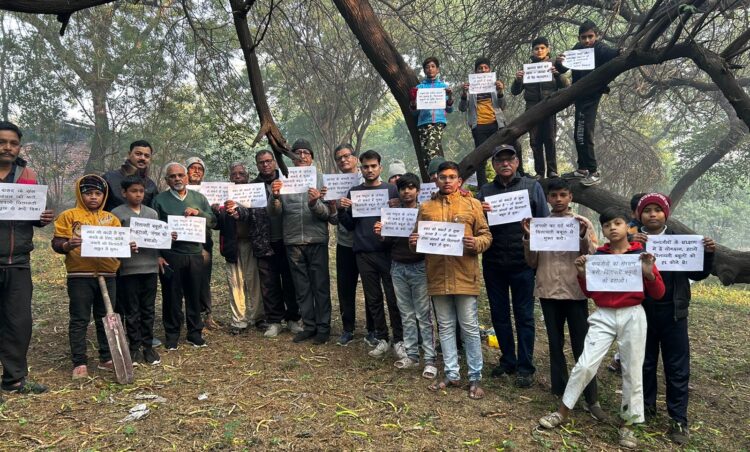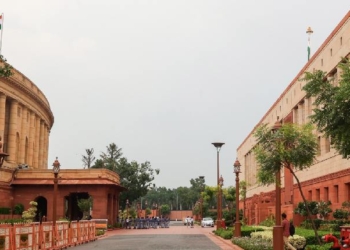Agra: Emboldened by the Supreme Court directive for Krishna Janmabhoomi (Braj Bhoomi) to control the spread of Juli Flora, a foreign invasive species, green activists in the Taj Trapezium Zone have demanded firm action to promote native vegetation after clearing uncontrolled growth of Vilayati Babool that was disturbing the eco-balance.
Alarmed over the uncontrolled spread of Juli Flora at the cost of native varieties of plants and trees, groups of green activists have urged the Uttar Pradesh Forest department and the horticulture department to draw up a strategy to arrest the further growth of Juli Flora all over the state.
A concerted campaign has been launched by Taj City’s environmentalists against (vilayati babool) Prosopis Juliflora, a foreign specie, and highly invasive with pan India spread.
Senior Supreme Court advocate K C Jain, the campaign crusader, said: “This foreign species had become aggressively invasive and was a menace to local species of flora. It spread rapidly overtaking native vegetation thus threatening biodiversity.”
This thorny shrub disturbed the ecological balance and was causing esthetic pollution in the city of the iconic Taj Mahal, Jain told the activists at Paliwal Park on Sunday.
Activists said the spread of the Juli Flora in the eco-sensitive Taj Trapezium Zone was a matter of concern and the UP Forest Department should immediately draw up a battle plan to mitigate its spread at the cost of other local varieties of trees that could sustain the exploding simian population, the butterflies and the migratory birds in the Soor Sarovar sanctuary area.
Tree lover Ankush Dave said the first step was to contain the spread of this “evil tree” by removing the existing plants with the roots.
“This of course would be a huge challenge due to its rapid growth and resilience, but further expansion had to be prevented at any cost,” Dave added.
The UP Forest Department has to start a monitoring and surveillance programme to control and manage the spread of this tree. Along with physical removal, herbicides could be used in the initial stages. Care should be taken not to harm the native vegetation or disturb the surrounding ecosystem.
Dr. Mukul Pandya, passionate horticulturist of Agra, said: “We need to start a public awareness and education programme to garner support from all stakeholders. The UP Forest Department, the Archaeological Survey of India, the UP Tourism Department, and other agencies should get involved and mount a concerted attack on this vile species of flora which had hit the wide biodiversity of the Braj Mandal.”
After clearing the areas steps should be taken to restore the native vegetation in specified areas. Replanting native species and promoting their growth could help balance the ecosystem and biodiversity in the Agra region, Pandya added.
The Juli Flora species had spread its tentacles wide from the Chambal River in the southwest of Agra to the Yamuna river banks up north.
“Earlier, hundreds of varieties of local trees were grown, hundreds of species of birds and butterflies were seen, but now all you see is the ubiquitous thorny Juli Flora,” said Eco Club president Pradip Kumar.
Lok Swar President Rajiv Gupta said: “Juli Flora was essentially a foreign species popularised in India by some British officials who brought it from South America. Some kings of Rajasthan took a fancy to this species because it is suited for semi-arid and arid areas, requiring little or no care. Brackish water and high salinity soil are also no deterrent for this species which propagates on its own. It has a pan India spread from Tamil Nadu to Kutch in Gujarat. We need to get agriculture scientists involved in research on this species.”
Campaign leader K.C. Jain said: “Soon we will meet the higher authorities and request action to curb the spread of this species. Legal action could also be taken by filing a PIL in the apex court, for directions.”
(IANS)
















